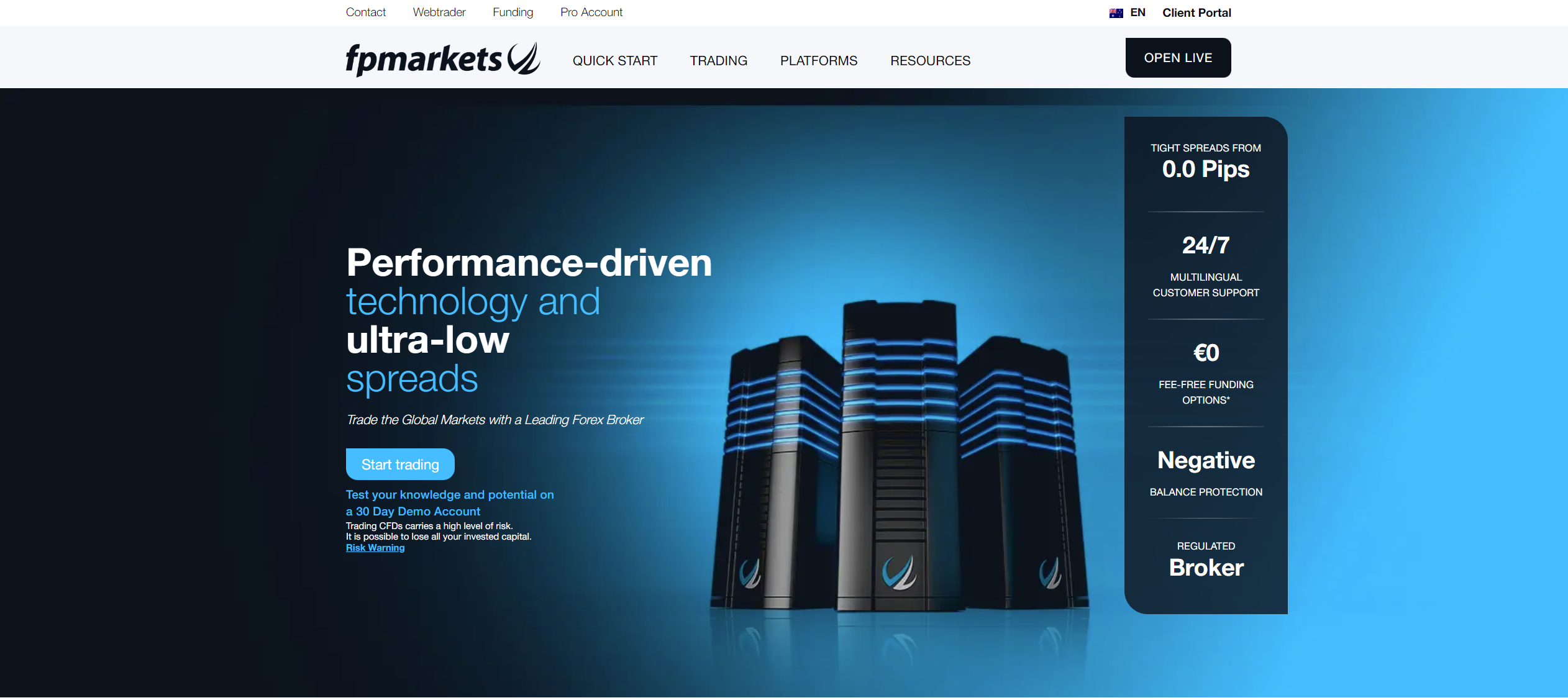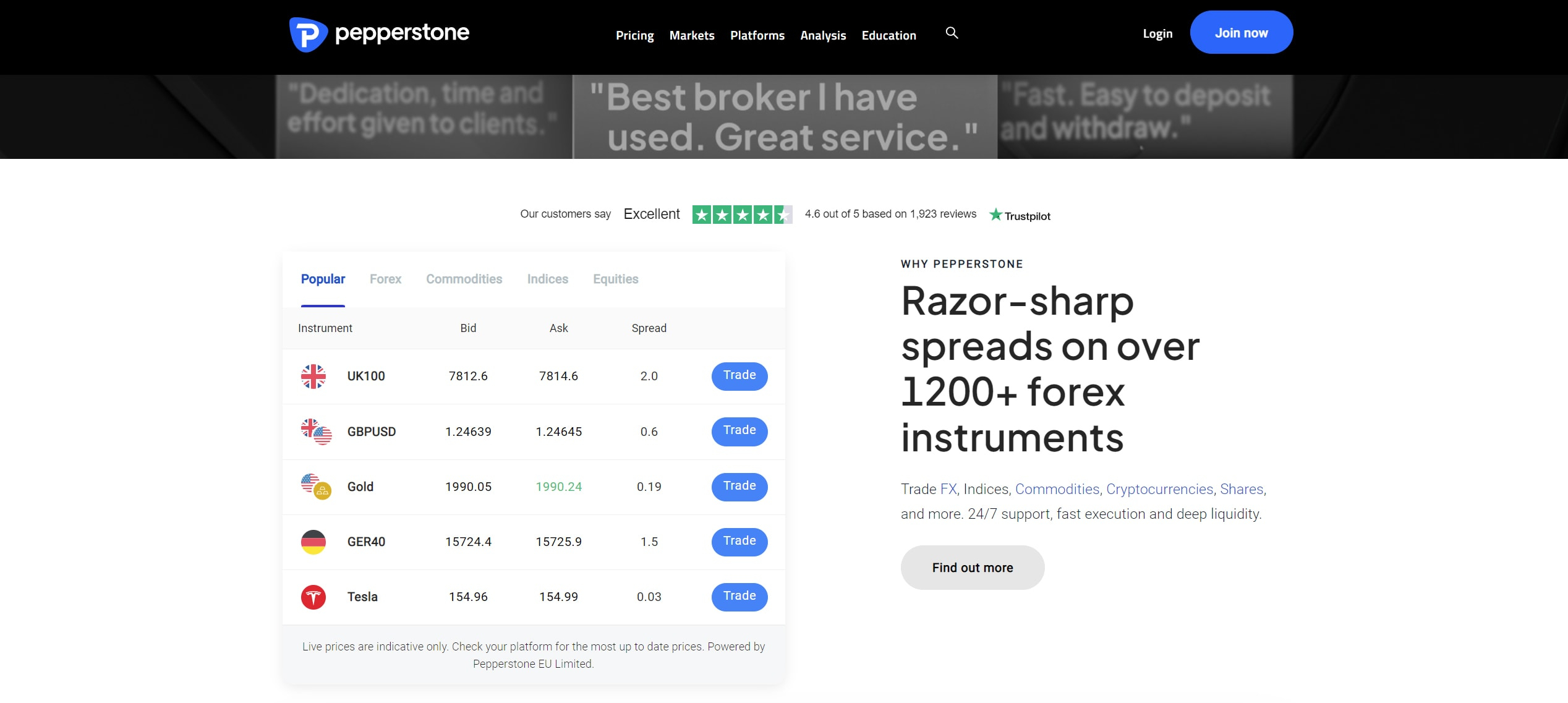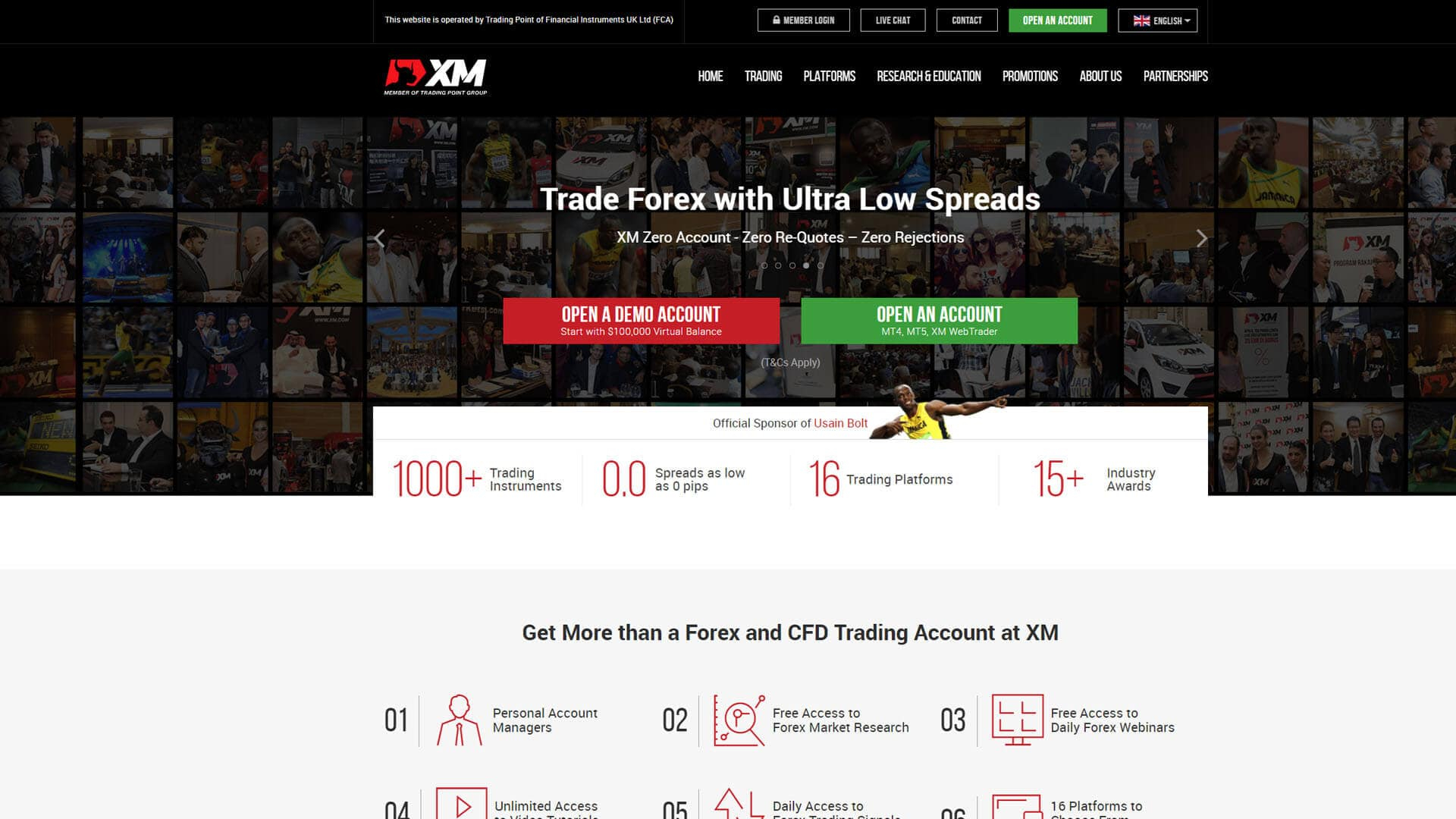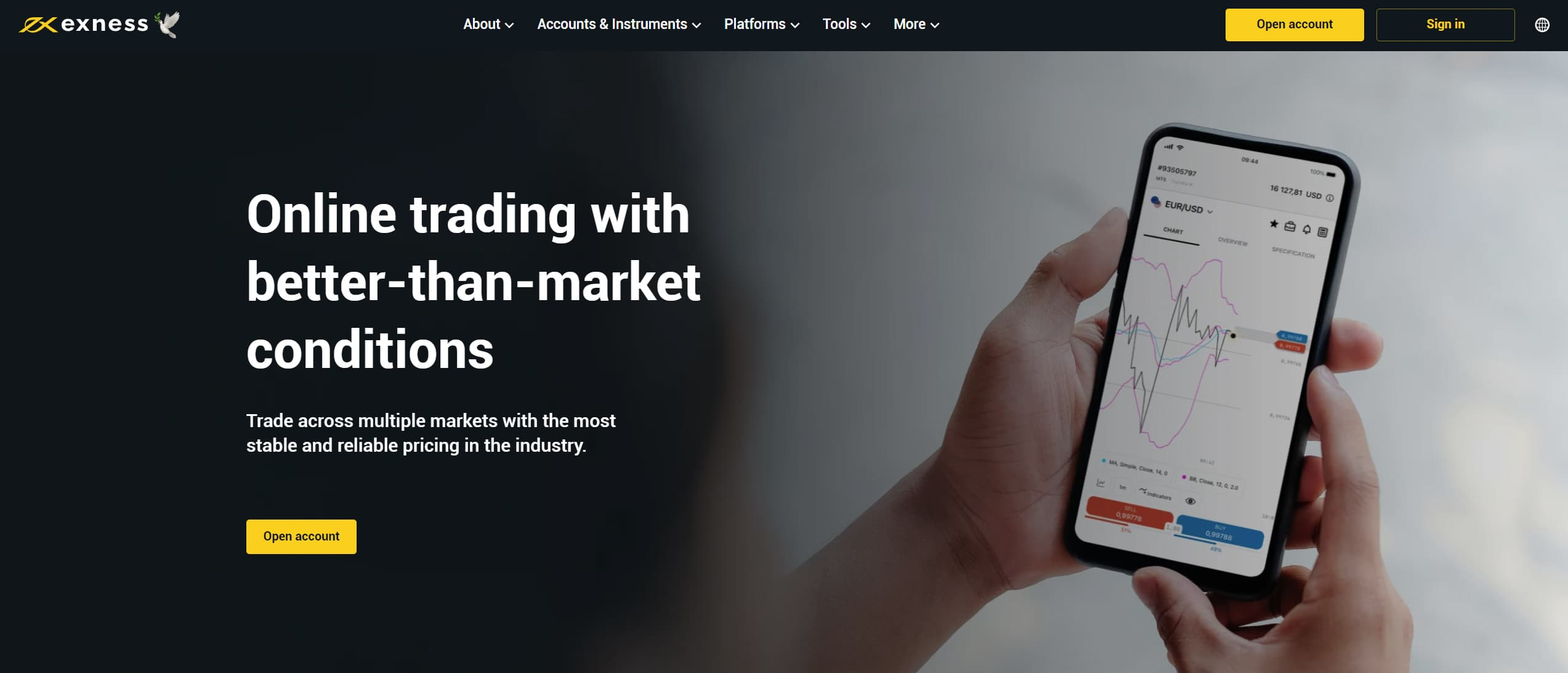Best Forex Brokers with Negative Balance Protection
The world of online trading comes with a ton of inherent risks. The markets are always fluctuating which could move against a trader’s position or positions. The use of leverage further magnifies the risk involved, especially when using high levels. Leverage essentially allows traders to place orders on borrowed funds to control larger positions than they would when using only their capital.
While this increases the potential profits a trader may enjoy, it also increases the potential losses. If the market moves against the trader, it could quickly wipe a trader’s account. This is where negative balance protection comes in. Negative balance protection ensures that traders cannot lose more than the funds they have in their trading accounts. Without it, in volatile market conditions, traders could end up owing money to their broker. In this review, we will look at some of the best forex brokers with negative balance protection.
Understanding The Role of Regulators in Negative Balance Protection
Regulators play a crucial role in ensuring the safety and fairness of financial markets, including the forex market. Their oversight extends to various aspects of broker operations, including negative balance protection. Many financial regulators have implemented rules or guidelines that require forex brokers to offer negative balance protection to their clients. This ensures that traders are shielded from excessive losses that could lead to financial hardship. For example:
Regulatory bodies like the FCA in the UK, the CySEC in Cyprus, the ASIC, and the NFA have set standards that require brokers to offer NBP to all retail clients.
Usually, the NBP framework of a regulator ensures that retail traders are not liable for more than the funds they have deposited into their trading accounts. It also ensures that brokers cannot demand additional payments from clients who have experienced significant losses due to market volatility. On top of that, it goes beyond just setting the standard for the regulators. Regulators regularly audit and monitor brokers to ensure they comply with the mandated negative balance protection rules. Some regulators even enforce penalties and sanctions such as fines, suspensions, or even revocation of the broker's operating license.
This is by far one of the main reasons why traders should prioritise investing with brokers that have regulations from top-tier organisations. With that said, what are some of the best forex brokers with negative balance protection? Let’s have a look.
FP Markets
Established in 2005, FP Markets is a globally recognized Forex and CFD broker offering a wide range of trading instruments. This broker offers negative balance protection to retail clients, ensuring that traders cannot lose more than their account balance. There are five different financial regulators that provide oversight for this broker. These include the CySEC, the ASIC, the FSCA, the FSA in St. Vincent and the Grenadines, and the FSA in Seychelles. Regulations from the CySEC and the ASIC are especially notable as these two organisations have some of the best negative balance protection rules.

Traders have plenty of options when it comes to market assets on the FP Markets trading site. This is because there are over 10,000 different assets including forex currency pairs alongside CFDs on indices, metals, stocks, commodities, ETFs, cryptocurrencies, and bonds. Positively, FP Markets offers industry-leading trading platforms to access these markets. These include MetaTrader 4, MetaTrader 5, TradingView, Iress, and cTrader.
Finally, FP Markets provides competitive spreads to help maximise trading profits. The Standard account offers spreads as low as 1.0 pip on major currency pairs with no commission. Meanwhile, the Raw account features spreads starting from 0.0 pips, with a commission of $3 per side per lot.
72.44% of retail CFD accounts lose money
Pepperstone
Another popular broker that offers negative balance protection is Pepperstone. This broker features an automated stop-out policy designed to minimise your losses and to take action before the market moves further against your open contracts. The level at which the automated stop-out occurs depends on the platform you're using.
For MT4/5 users, the automated stop-out system will begin to close out trades when account equity falls below 20% of the margin requirements. That is when the margin level falls below 20%. For cTrader accounts, the automated stop-out system will begin to close out trades when account equity falls below 50% of the margin requirements. If your account incurs a negative balance before the stop-out system kicks in, then Pepperstone will clear it, returning your balance to zero as soon as possible.
In terms of regulations, this broker does not disappoint. Pepperstone operates under the regulatory oversight of some of the most reputable organisations. These include the FCA, the ASIC, the CySEC, the BaFin, and the DFSA in the DIFC, among others.

Regarding the trading instruments, this broker avails over 1,200 different assets. These include CFDs on forex, cryptocurrencies, indices, stocks, commodities, and ETFs. This provides traders with plenty of opportunities to spread their investment across various markets. There are various platforms that traders can use to place orders including MetaTrader 4, MetaTrader 5, cTrader, Pepperstone Trading Platform, and TradingView.
The spreads involved are within industry standards on both accounts available on this broker site. The standard account on Pepperstone has a spread that starts from 1.0 pips for major currency pairs with no commission. On the other hand, its razor account offers spreads from 0.0 pips plus a commission that depends on the trading platform a trader uses. MetaTrader 4, MetaTrader 5, TradingView, and Pepperstone Trading Platform charge $3.5 per side per lot, while cTrader has a slightly lower commission of $3 per side per lot.
75.3% of retail CFD accounts lose money
Forex.com
Forex.com is another well-regulated broker with negative balance protection. This broker provides negative balance protection to retail clients only, ensuring that their accounts are protected should their balance fall below zero. If the broker finds that the account falls below zero, they will adjust the account back to zero as soon as possible.
Like other brokers on this list, Forex.com also operates under the supervision of a variety of top-tier regulators. Its parent company, StoneX has regulations from the CFTC and NFA in the US, the FCA in the UK, the CySEC in Cyprus, and the ASIC in Australia, among others.

Further, Forex.com is a global leader in financial trading, providing traders with access to a wide variety of markets. For traders in the US, this broker provides forex, futures, and futures options for trading. In comparison, traders outside the US can trade CFDs on forex, stocks, indices, cryptocurrencies, commodities, and precious metals. In total, traders get access to over 5,500 different assets. The trading platforms available to use include MetaTrader 4, MetaTrader 5, TradingView, and Forex.com Trader.
Finally, Forex.com offers some of the lowest spreads in the market. The Standard account features competitive spreads starting from 0.8 pips, while the MetaTrader account offers spreads beginning at 1.0 pips. Both of these accounts do not charge a commission. On the other hand, the Raw account provides spreads starting from 0.0 pips, but a commission of $5 per $100,000 traded is charged.
76-77% of retail investor accounts lose money when trading CFDs with this provider.
XM
XM is a leading Forex and CFD broker, serving over 5 million clients in 196 countries. It is known for its no-requotes policy and favourable trading conditions. It is also known for providing negative balance protection, ensuring that traders can never lose more than what they’ve deposited. Notably, XM operates under the regulation of the CySEC and the ASIC, two of the top regulators in the market.

Trading costs on the XM platform are competitive. The Standard and Micro accounts offer spreads starting at 1.0 pip or less on major currencies, with no commissions. Traders looking for tighter spreads can opt for the XM Ultra Low account, which offers spreads starting at 0.6 pips, also commission-free. The trading platforms that the broker avails include MetaTrader 4, MetaTrader 5, and their very own XM Trading Point App.
These trading platforms give clients access to a ton of market products totalling over 1,000. These include CFDs on forex, stocks, indices, energies, precious metals, and cryptocurrencies. Such a collection of market instruments allows investors to trade in more than one market on the same account.
75.18% of retail investor accounts lose money when trading CFDs with this provider.
Exness
We continue this list with one of the biggest brokers in the world. Exness provides negative balance protection across all its accounts, ensuring that traders will not owe it money. Their stop-out system works automatically to prevent traders from losing more than their account balance. Additionally, if a stop out causes all your orders to close in a negative balance, Exness will restore it to zero. On another good note, Exness is regulated by leading international governing bodies globally. This broker has regulations from the CySEC in Cyprus, the FCA in the UK, the FSCA in South Africa, and the CMA in Kenya, among others.

Traders can invest in a wide range of markets using world-class trading platforms that the broker offers. The platforms include MetaTrader 4, MetaTrader 5, Exness trader app, and Exness terminal. These platforms allow traders to trade CFDs on forex, indices, commodities, stock, and crypto. The spreads involved when trading with Exness depend on the account a trader uses.
The standard account features spreads as low as 0.2 pips with no commissions. The standard cent account offers spreads from 0.3 pips, also commission-free. The Zero account provides ultra-low spreads starting at 0.0 pips on the top 30 instruments, with commissions starting at $0.2 per side per lot. The Pro account offers spreads as low as 0.1 pips, with no commissions. Finally, the raw spread account provides spreads as low as 0.0 pips with a commission of up to $3.5 per side per lot.
Remember that forex and CFDs available at Exness are leveraged products and can result in the loss of your entire capital.
Please ensure you fully understand the risks involved.
eToro
eToro is a well-known multi-asset broker renowned for its revolutionary copy-trading feature. eToro offers negative balance protection to all its clients. This ensures that traders do not lose more money than the total sum they have invested in CFDs. In such a case, the broker will review your portfolio value to check if it’s still negative after all your trades have closed. If your account is eligible, eToro will absorb the loss and reset your portfolio value to zero. You will then be able to deposit more funds and continue investing as normal.
Please note that it is possible for your ‘Cash Available’ balance to be negative when all your funds are invested in open positions and overnight fees have been deducted, or you have incurred trading losses. Negative balance protection does not apply in these cases if your portfolio value remains positive.

Importantly, eToro has regulations from so the best financial watchdogs in the market. This means that the broker follows some of the stringent negative balance protection rules in the market. In particular, this broker is under the regulation of the FCA in the UK, the ASIC in Australia, and the CySEC in Cyprus, among others.
In terms of market products, this broker allows its investors to diversify their portfolios using a variety of instruments. Specifically, investors can trade CFDs on forex, cryptocurrencies, stocks, commodities, ETFs, and indices, or they can buy real stocks and cryptocurrencies. The platform provides competitive spreads, starting at 1.0 pip for major currency pairs, without charging commissions. The available trading platform is the eToro platform, renowned for its proprietary CopyTrader technology.
61% of retail investor accounts lose money when trading CFDs with this provider.
Closing Remarks
Negative balance protection is an essential feature that safeguards traders from the risk of owing more than they invest, especially when using leverage. While the allure of high leverage can lead to greater profits, it also opens the door to significant losses. This is why choosing a broker that offers negative balance protection is critical. The brokers mentioned in this article are well-regulated brokers and provide this vital feature.
Remember, choosing a broker involves more than just negative balance protection. Consider factors like regulation, trading instruments, spreads and commissions, and available platforms. The regulation is especially important as it can play a significant role in the negative balance protection policy.
Top-Tier Trusted Brokers
The table below contains links to 3rd party websites of our top partners from whom we receive compensation at no additional cost to you.


































